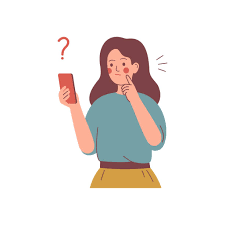Students discuss impacts of Instagram, TikTok on self-image
February 8, 2022
Editor’s note: This article first appeared in the Feb. 4, 2022 flipbook.
While watching the music video for Lady Gaga’s 2009 hit “Telephone” with a friend, Vivian Moyers came to a stark realization about body image and beauty standards. As the pop star paraded through prison cells wearing nothing but a studded leather bra, underwear and six-inch stilettos, Moyers began to think about the treacherous lengths Gaga endured to achieve her slender physique.
“Lady Gaga had previously disclosed that during these music videos, she was at the peak of her eating disorder,” said Moyers, an international relations sophomore. “As we were watching the music videos we were saying, ‘This isn’t healthy for us; we shouldn’t be watching this.’”
In 2022, on top of tuning into stars like Gaga on YouTube, Moyers and other students like her now have nonstop access to their peers’ handmade content. As a result of social media apps such as Instagram and TikTok, where users have the opportunity to share their own bite-sized music videos with the virtual world, the picture perfect standards of beauty once reserved for celebrities and idols now pertain to everyday people, too.
Watching classmates don filters that aim to enlarge eyes, shorten noses and narrow faces, computer science sophomore Justice Warren said constant exposure to flawless faces exacerbates negative feelings toward one’s self-image.
“(Seeing) friends and people you go to school with using (filters) and posting selfies, you start thinking, ‘Why do they look like that? When I turn the camera on, I don’t look like that,’” Warren said. “You feel like (you) can’t post a picture without also using those filters or learning how to do makeup.”
As Instagram and Tiktok become increasingly prevalent in social interactions, Warren said online impressions serve as a prominent way to critique outward appearances.
“The self becomes a form of media.” Warren said. “Just like you wouldn’t share a drawing that you didn’t think was perfect or worthy of likes, pictures of me have to be perfect (as well).”
Speech language pathology senior Zoe Brezner said as digital communication increases, especially on TikTok, which saw a 787.86% increase in usership in the U.S between January 2018 and July 2020, teens have become more susceptible to expecting unrealistic standards of beauty.
“Girls are exposed to social media so young, they start thinking … that they need to look like Instagram models,” Brezner said. “They’re young and impressionable, (so) they think that that’s normal.”
Moyers said falling victim to these pressures proved detrimental during her formative years. But, after unfollowing mutuals and celebrities who contributed to negative perceptions about herself, she now puts more emphasis on sharing things she enjoys.
“I went through a phase where I would heavily edit and filter my pictures to try to embody (Western) beauty standards,” Moyers said. “But recently, I’ve gotten into the flow of posting what makes me happy.”
Similarly for Brezner, by being mindful of the lengths users online go to produce perfect appearances, she can curate her feed to help motivate healthy habits and focus on content she enjoys.
“I try to avoid the influencers who aren’t as positive. … (Instead) I try and watch creators who use their platform not necessarily to show off, but to spread a more positive message.”
Brezner said she credits her ability to avoid negative comparisons and maintain self-love to her parents, as they commonly instilled values of confidence in her as a child.
“(My parents) always (said), your body is what makes you special, so you should never be ashamed of it,” Brezner said. “Whenever I was little, they always emphasized that confidence is the most beautiful thing, so I always try to take that with me.”












